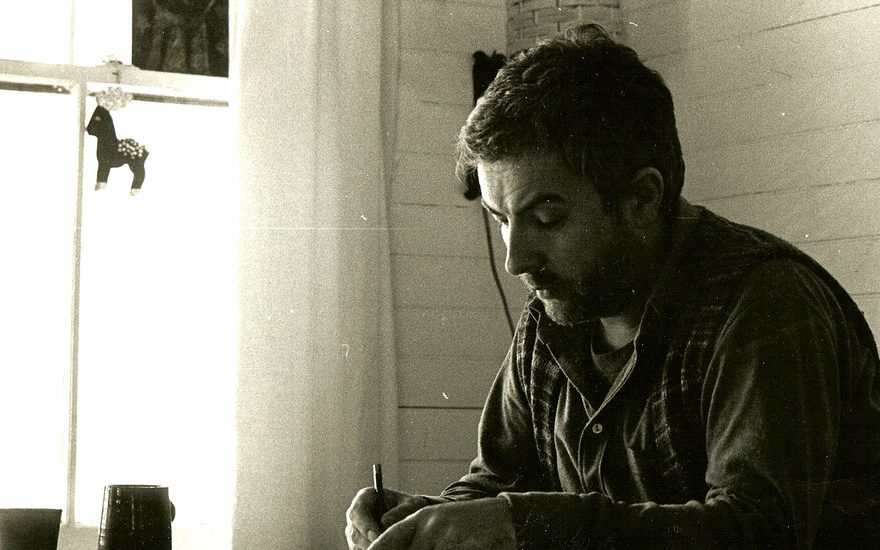Karl Berger, a musician, composer, educator and author who taught improvisation and his concept of an attentive, collaborative “music mind” to generations of musicians and artists at his Creative Music Studio near Woodstock, N.Y., died on April 9 in Albany, N.Y. He was 88.
Billy Martin, the studio’s executive director, said the death, at Albany Medical Center, was caused by complications following gastrointestinal surgery.
Mr. Berger was a pianist and vibraphonist who performed and recorded with leading jazz musicians including Ornette Coleman, Don Cherry, John McLaughlin, Carla Bley, Anthony Braxton, Jack DeJohnette, Pharoah Sanders, Dave Brubeck and Lee Konitz, among many others.
Mr. Coleman, Mr. Berger and his wife, the singer Ingrid Sertso, founded the Creative Music Foundation in the early 1970s, to focus on improvisation and musical cross-pollination. The foundation ran the Creative Music Studio, initially in Hurley, N.Y., near Woodstock, where Mr. Berger and other artists performed and taught. There, internationally known musicians from jazz and other traditions worked with musicians at all levels of skill, from amateur to virtuoso.
Through the years, Mr. Berger played with small and large ensembles, recorded extensively, led university music departments, wrote arrangements for rock and pop albums, taught schoolchildren and adults, and developed his own techniques to unlock and encourage individual and collaborative musical thinking. His compositions often made connections with non-Western styles, and his musical practices drew on Eastern spirituality and meditation.
“It’s not what you play, it’s how you play,” he often said.
Mr. Martin said Mr. Berger’s musical approach was “not about genre.”
“It’s about listening and making sound together," he said, “starting from that fundamental place and building from there.”
In his book, “The Music Mind Experience,” written with Rick Maurer, Mr. Berger insisted that “everyone is born with an abundance of musical talent,” and that all music shares fundamental common elements: rhythm, sound, space and dynamics. He sought to teach both players and listeners to escape routine and to concentrate their attention “fully in the moment.”
Mr. Berger was born on March 30, 1935, in Heidelberg, Germany. He began studying classical piano at 10, but at 14 he heard a jazz jam session that made him decide to play his own music. In 1953, he joined a group that included Ms. Sertso, whom he would soon marry. She survives him along with their daughter, Savia.
In the 1950s, as the house pianist at the Heidelberg club Cave 54, Mr. Berger learned modern jazz in late-night jams with American musicians from military bands stationed nearby. He earned a Ph.D. in musicology and philosophy in Germany in 1963 and held philosophy professorships at two universities in Germany. But by the mid-1960s he had turned to music.
He moved to Paris and joined a group led by the trumpeter Don Cherry, who had been learning world-music melodies from shortwave radio broadcasts. In 1966, Mr. Cherry invited Mr. Berger to New York City to play on “Symphony for Improvisers,” a landmark free-jazz album.
Mr. Berger made his debut album as a leader, “From Now On,” in 1967, and recorded with Mr. Cherry and others in the late 1960s. He went on to make more than two dozen albums as a leader and many others as a sideman. His lean, linear, freely melodic vibraphone playing repeatedly made him the top vibraphonist in the Down Beat magazine musicians’ poll.
In 1971, Mr. Berger started the Creative Music Foundation with Ms. Sertso, Mr. Coleman and an advisory board that included John Cage, Gil Evans, Buckminster Fuller and Willem de Kooning. He moved to Woodstock in 1972 and inaugurated the Creative Music Studio, which settled into a nearby mountain lodge with residences and performance spaces.
Leading musicians including Mr. Braxton, Mr. DeJohnette, Cecil Taylor and Dave Holland joined students in improvising groups. More than 550 performances were recorded and later digitized for an archive that was purchased by the Columbia University Library in 2012.
During the 1980s, grant funding dwindled, and the studio curtailed its programs in 1984. But Mr. Berger remained active as a performer, touring Europe, Asia and Africa with Ms. Sertso.
In the 1990s, he was also in demand as a string-section arranger. After working on Jeff Buckley’s 1994 album “Grace,” he wrote arrangements for albums by Natalie Merchant, Angelique Kidjo and others.
Mr. Berger was a professor of composition and dean of music education at the Frankfurt University of Music and Performing Arts in Germany, and chairman of the department of music at the University of Massachusetts Dartmouth during the early 2000s — although he objected to the department’s emphasis on classroom study rather than performance.
He and Ms. Sertso opened Sertso Recording Studio in Woodstock in 2004. In 2010, with the help of musicians who had studied at Creative Music Studio decades earlier, they revived the organization. Mr. Berger led concerts in New York City and elsewhere by an Improvisers Orchestra, and in 2013 the studio restarted intensive semiannual workshops in the Catskills with musicians including Vijay Iyer, Henry Threadgill, Steven Bernstein and Joe Lovano.
Mr. Berger relinquished the leadership of Creative Music Studio in 2017. But he continued to record and perform. His most recent release, in 2022, was a trio album, “Heart Is a Melody,” with Kirk Knuffke on cornet and Matt Wilson on drums. The album reached back to Mr. Berger’s free-jazz inspirations, with an Indian-inspired Don Cherry piece, “Ganesh,” and a tune called “Ornette.”
“We all are infinitely more talented than we’ll ever realize in one lifetime,” Mr. Berger wrote in “The Music Mind Experience.” He continued, “Once we get in touch with our own voice, our own ways, we simply have to stay with it.”
Source: Read Full Article
